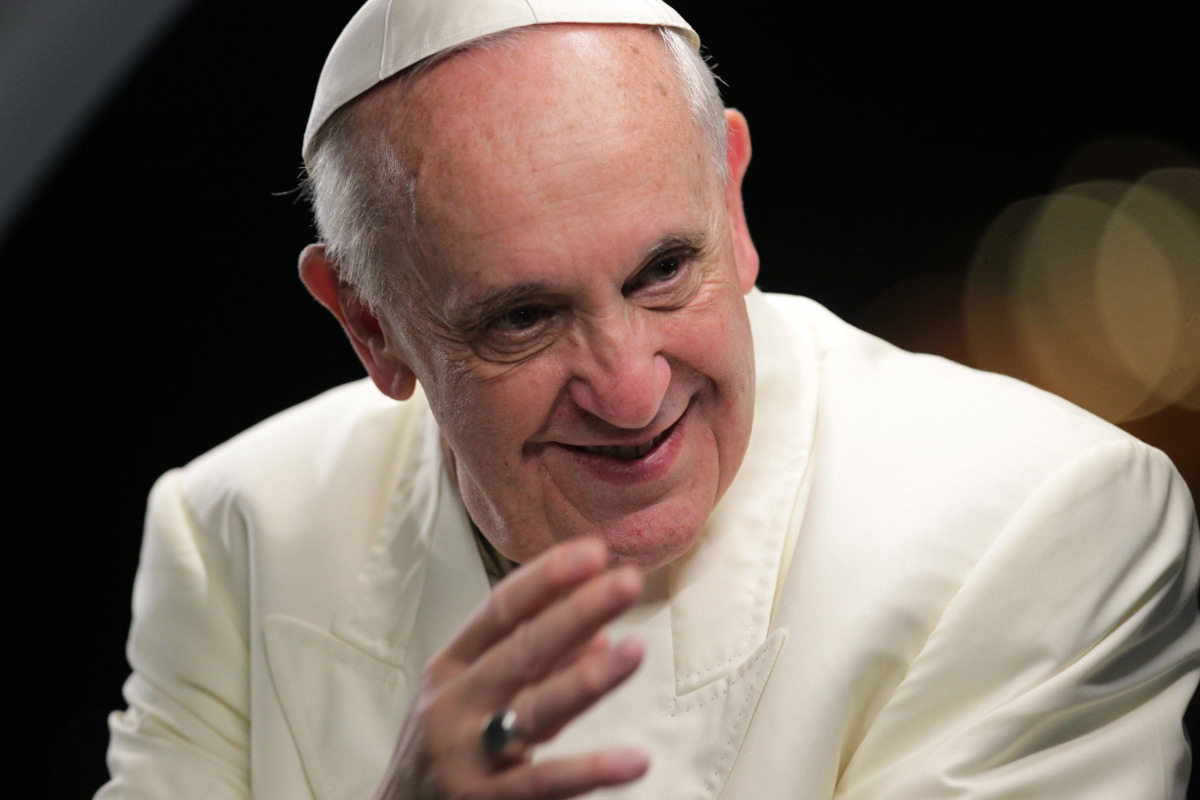by Elizabeth Dias,
from TIME Magazine,
3/5/14:
The deeper symbolic power of Francis’ latest tone-shifting statement lies in the day that his words broke.

The latest fuss about the Holy Father’s views of gays came after the Italian daily Corriere della Sera published an interview with him on Wednesday. When asked about civil unions, Pope Francis said that states seek “to regularize different situations of living together” in order to ensure health care and other economic benefits, according to the translation by Vatican Insider. And, he added, “We have to look at the different cases and evaluate them in their variety.”
Predictably, the internet exploded: a Huffington Post headline read, “Pope Francis Suggests Gay Civil Unions May Be Tolerable By Church.” ThinkProgress’s LBGT vertical touted a story, “Pope Francis Suggests Support For Civil Unions.” Catholic News Service was slightly more measured with its tweet: “Pope, in interview, suggests church could tolerate some civil unions.”
First, it is important to be clear about what Pope Francis did and did not just say. He did not affirm gay marriage. He did not announce Holy See support for civil unions. He reiterated, yet again, the traditional and non-changing Catholic teaching that marriage is between one man and one woman. Today his words about civil unions actually appeared to be about health care and economic equality, not marriage itself.
He also, once again, reminded the world that his papacy seeks to welcome gays, not to judge.
The deeper symbolic power of Francis’ latest tone-shifting statement lies in the day that his words broke. Today, March 5, is Ash Wednesday, one of the holiest days in the Catholic calendar, and this evening in Rome, Pope Francis bowed to receive the ashes in the sign of the cross on his forehead.
“Lent calls us to ‘give ourselves a “shake-up,”‘ to remember that we are creatures, that we are not God,” he preached in his Ash Wednesday sermon.
More From TIME Magazine:
What did Pope Francis actually say (according to Catholic Vote)?
"When I meet a gay person, I have to distinguish between their being gay and being part of a lobby. If they accept the Lord and have goodwill, who am I to judge them? They shouldn’t be marginalized. The tendency [to homosexuality] is not the problem…they’re our brothers."
First of all, the supposedly provocative line begins with the word, “if,” and it’s a BIG IF. Most homosexuals do not accept Jesus’ teachings on chastity. Salvation comes from Jesus. Sin is a rejection of salvation.
Some people with homosexual tendencies choose to accept the salvation of our Lord and maintain a life of chastity. This is the key to what Pope Francis is saying: people with homosexual desires who are able to exhibit this level of self-control should be welcomed as our brothers and given encouragement in their struggle. This is a very beautiful statement. However, it does not say anything about people who give in to carnal desires and live promiscuously—whether gay or straight.
Pope Francis does hint at this though. He says that the tendency to homosexuality is “not the problem,” which is to imply that there is a problem. There may not be an official “gay lobby” in the Holy See, but there is definitely a gay lobby in secular political life and it is viciously opposed to the Catholic Church. People who campaign for same-sex marriage or who objectify the human body do not have goodwill for us. We do not need to judge them because their actions speak for themselves.
It’s unclear whether the ellipsis indicates that Pope Francis spoke about any of this at all. He didn’t need to though. If you take his words at face value, he made a very powerful statement which encapsulates all of Catholic teaching.












